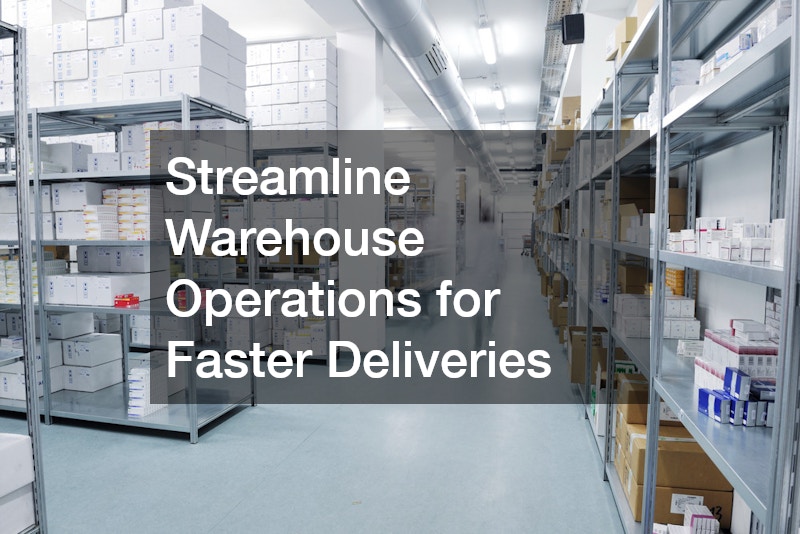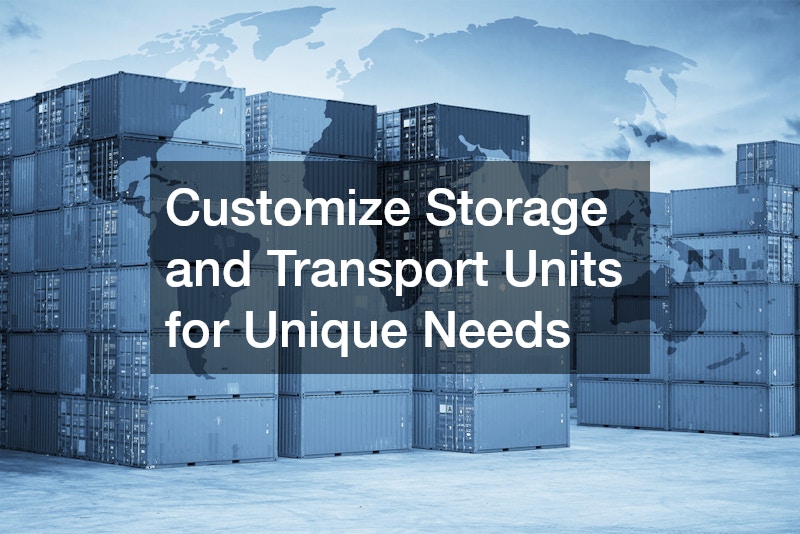Manufacturers and logistics professionals face an array of challenges that demand innovative solutions. Supply chains are becoming increasingly complex, customer expectations are higher than ever, and the pace of technological advancement continues to accelerate. Businesses that fail to adopt modern approaches risk falling behind in efficiency, profitability, and customer satisfaction. At the same time, companies that embrace new strategies, tools, and processes can unlock significant operational advantages and position themselves as leaders in their industries.
Modern manufacturing and logistics solutions encompass a broad spectrum of improvements—from the way materials are handled on the factory floor to the methods used for transporting goods to customers. Innovations in warehouse operations, equipment maintenance, packaging, and supply chain financing all play critical roles in ensuring smooth and cost-effective operations. For instance, techniques that enhance material handling can reduce waste and improve throughput, while advanced transportation methods ensure that products arrive on time and in optimal condition.
The integration of technology is another key driver of modern efficiency. From automated production systems to data-driven logistics management, businesses now have unprecedented visibility and control over their operations. Coupled with smart financing options, such as microloans for small and medium enterprises, these advancements provide the foundation for scalable growth.
Explore several modern solutions that address core challenges in manufacturing and logistics to enhance efficiency, maintain quality, and support growth. Whether you’re managing a warehouse, overseeing production, or planning supply chain strategies, these insights can provide actionable guidance to optimize operations.
Improve Material Handling for Greater Efficiency
Efficient material handling is fundamental to any manufacturing operation. Investing in modern handling solutions can directly impact production speed, reduce waste, and improve overall operational effectiveness. Reducing bottlenecks, minimizing errors, and ensuring that materials move seamlessly through the production process can dramatically improve overall productivity. One solution that has gained traction in recent years is the use of plastic random packing.
Plastic random packing provides an organized yet flexible approach to storing and transporting materials in bulk. Unlike traditional rigid containers, these systems can adapt to varying shapes and sizes, helping facilities maximize storage space while protecting items from damage. They also reduce the need for manual handling, minimizing the risk of injury and improving workflow efficiency.
Incorporating plastic random packing into production lines and warehouses allows for smoother transitions between storage, assembly, and shipping areas. Workers can easily access the materials they need without slowing down operations, and automated systems can integrate seamlessly with these storage solutions. Beyond efficiency, the durability and reusability of plastic random packing contribute to cost savings over time, making it a practical investment for forward-thinking businesses.

Streamline Warehouse Operations for Faster Deliveries
Warehouse management plays a crucial role in maintaining the flow of goods from production to end customers. Inefficient processes can result in delayed shipments, increased labor costs, and frustrated clients. One effective method for optimizing warehouse operations is implementing cross docking and transloading strategies.
Cross docking involves unloading materials from inbound trucks and immediately transferring them to outbound vehicles, minimizing storage time. Transloading, on the other hand, refers to transferring goods from one mode of transportation to another, such as from rail to truck, to improve delivery efficiency. Both practices reduce inventory holding costs and accelerate order fulfillment.
By incorporating cross docking and transloading into warehouse operations, businesses can achieve faster turnaround times, lower storage expenses, and improved customer satisfaction. Additionally, these approaches support just-in-time inventory models, allowing companies to respond quickly to market demand without overstocking or wasting valuable space. When executed correctly, these strategies provide a clear competitive edge in logistics-heavy industries.
Maintain Temperature-Sensitive Goods During Transit
Transporting perishable or temperature-sensitive goods presents unique logistical challenges. Whether shipping fresh produce, pharmaceuticals, or other sensitive materials, maintaining optimal conditions throughout the journey is critical to prevent spoilage or degradation. Advanced cold transportation logistics solutions are designed to address these needs effectively.
Cold transportation logistics involves specialized vehicles, monitoring systems, and routing strategies to ensure that goods remain within required temperature ranges from origin to destination. Real-time tracking allows operators to adjust conditions if unexpected delays occur, safeguarding product quality. Businesses leveraging these solutions can significantly reduce waste, meet regulatory requirements, and maintain customer trust in an increasingly globalized world.
Additionally, optimizing routes and schedules as part of cold transportation logistics can minimize fuel consumption and operational costs, creating both environmental and economic benefits. Companies that prioritize these practices demonstrate a commitment to quality, which can enhance their brand reputation and strengthen client relationships.

Customize Storage and Transport Units for Unique Needs
Tailoring storage and transport solutions to your specific operational needs can significantly boost productivity and reduce costs. Every business has unique storage and shipping requirements, and standard solutions may not always suffice. Adapting storage and transport units to specific needs can improve efficiency, safety, and overall operational performance. One approach gaining popularity is the implementation of modifications for shipping containers.
Customizing shipping containers can involve adding insulation, shelving, or partitioning to accommodate specialized cargo. Businesses can also modify containers for easier access, better airflow, or secure storage of high-value items. These modifications enhance both safety and efficiency, allowing materials to be transported without damage while maximizing container space.
Beyond transportation, modified containers can be repurposed as temporary storage units, mobile workspaces, or modular production areas. This flexibility allows companies to adapt quickly to changing operational needs without significant capital investment. In essence, container modifications represent a practical, versatile solution for modern supply chain challenges.
Flexible Options for Temperature-Controlled Freight
Temperature-sensitive freight requires specialized transport solutions, but not every company can justify investing in a full fleet of refrigerated vehicles. Reefer trailer rental offers a flexible alternative that enables businesses to manage seasonal or fluctuating demand without large capital expenditures.
Renting reefer trailers allows companies to access temperature-controlled transport on demand, scaling capacity as needed. This flexibility is particularly useful for businesses handling perishable goods or pharmaceuticals, as it ensures product integrity without long-term commitments. Additionally, reefer trailers are often equipped with advanced monitoring systems that provide real-time temperature data, ensuring compliance with industry standards and regulations.
By integrating reefer trailer rental into logistics planning, businesses can maintain reliability, reduce risk, and respond quickly to changing customer requirements. This approach also frees up resources that would otherwise be tied up in owning, maintaining, and storing specialized vehicles. Leveraging rental solutions allows companies to stay agile and competitive in markets with unpredictable demand or seasonal fluctuations.

Leverage Technology to Boost Production Capabilities
The advanced manufacturing industry continues to evolve through the adoption of cutting-edge technologies. Automation, robotics, artificial intelligence, and data analytics have transformed traditional production methods, enabling higher output, greater precision, and improved flexibility.
Manufacturers in the advanced manufacturing industry can leverage these tools to optimize processes, reduce errors, and lower operational costs. For instance, predictive maintenance systems can detect potential equipment failures before they occur, while AI-driven scheduling ensures optimal allocation of resources and labor. Additionally, automation can streamline repetitive tasks, freeing human workers to focus on higher-value activities.
Investing in technology within the advanced manufacturing industry not only boosts efficiency but also enhances competitiveness. Companies can respond faster to market demands, deliver higher-quality products, and explore innovative production methods that were previously unattainable. As technology continues to advance, staying ahead of the curve becomes essential for long-term success.
Prevent Downtime Through Routine Equipment Checks
Equipment failure is a major source of inefficiency and financial loss in manufacturing operations. Preventing unexpected downtime requires a proactive approach, and conducting regular preventative maintenance inspections is a proven strategy to mitigate risk.
Preventative maintenance inspections involve systematic evaluations of machinery and equipment to identify wear, potential failures, or operational issues before they cause disruptions. By addressing these concerns early, businesses can reduce repair costs, minimize unplanned downtime, and extend the lifespan of their assets.
Additionally, preventative maintenance inspections improve safety for employees by ensuring that machinery is functioning properly and reducing the likelihood of accidents. A well-maintained facility can operate smoothly, consistently meeting production targets and customer expectations. Organizations that prioritize routine inspections position themselves for reliable, uninterrupted operations over the long term.

Outsource Production to Enhance Efficiency and Scalability
For many businesses, expanding production capacity without investing in new infrastructure can be challenging. Contract manufacturing offers a viable solution, allowing companies to outsource aspects of production while maintaining quality and control.
Contract manufacturing enables businesses to leverage the expertise, equipment, and workforce of specialized manufacturers. This approach can reduce capital expenditure, accelerate time-to-market, and provide flexibility to scale production based on demand. Companies engaging in contract manufacturing can focus on core competencies, such as product design, marketing, and customer service, while trusted partners handle the operational aspects of production.
Additionally, contract manufacturing often provides access to advanced technologies and processes that may not be available in-house, allowing businesses to innovate without incurring significant costs. By strategically partnering with contract manufacturers, companies can optimize efficiency, manage risks, and drive sustainable growth.
Optimize Packaging Solutions for Faster Production
Packaging plays a crucial role in both protecting products and ensuring smooth workflow in manufacturing and logistics. Investing in efficient packaging equipment, such as a corrugated box making machine, can significantly improve production speed and output quality.
A corrugated box making machine enables on-demand production of boxes tailored to specific dimensions and requirements. This reduces dependency on third-party suppliers, minimizes inventory storage, and allows for rapid adjustments to changing product sizes. By streamlining packaging operations, businesses can meet tighter deadlines, reduce material waste, and enhance overall efficiency.
Corrugated box making machines contribute to cost savings and environmental sustainability. High-quality packaging ensures product protection during transit, reducing returns and damage claims. Overall, integrating advanced packaging solutions is a strategic step toward optimizing production and logistics operations. By adopting these technologies, businesses can maintain consistent output, improve customer satisfaction, and stay ahead in a competitive market.
Access Funding to Grow Small and Medium Businesses
Expanding operations, investing in new technologies, or upgrading facilities often requires external financing. For small and medium-sized enterprises, securing affordable and accessible funding is critical. SBA microloan lenders provide an effective way for these businesses to obtain capital for growth and innovation.
SBA microloan lenders offer smaller loan amounts with favorable terms, making them ideal for companies that may not qualify for traditional bank loans. These loans can be used for equipment purchases, working capital, facility improvements, or other operational needs. Accessing funding through SBA microloan lenders allows businesses to implement modern solutions in manufacturing and logistics, driving efficiency and competitiveness.
Additionally, these lenders often provide guidance and support alongside financing, helping small and medium businesses make strategic decisions that enhance long-term sustainability. By leveraging these resources, companies can invest in technologies, processes, and solutions that position them for continued success in a dynamic market.
Modern manufacturing and logistics challenges require innovative solutions that address efficiency, quality, and scalability. From material handling to transportation, production, packaging, and financing, each aspect of operations presents opportunities for optimization and improvement.
Implementing strategies such as plastic random packing can enhance workflow efficiency and reduce delays. Leveraging cold transportation logistics and reefer trailer rental ensures that temperature-sensitive goods reach customers in optimal condition. Customizing storage and transport units with modifications for shipping containers provides flexibility and safety in handling diverse cargo.
Investments in technology within the advanced manufacturing industry, coupled with preventative maintenance inspections, drive productivity and reliability while minimizing downtime. Contract manufacturing allows businesses to scale operations efficiently, while corrugated box making machines optimize packaging processes to support faster production. Accessing funding through SBA microloan lenders enables small and medium-sized enterprises to implement these modern solutions, fostering growth and competitiveness.
By integrating these approaches, businesses can navigate the complexities of contemporary manufacturing and logistics with confidence. Operational improvements not only reduce costs and increase productivity but also enhance customer satisfaction and strengthen market positioning. Companies that adopt these modern strategies are better equipped to adapt to changing demands, embrace technological advancements, and achieve sustainable long-term growth. Emphasizing innovation, efficiency, and flexibility across all areas of operations positions organizations to meet the challenges of today and the opportunities of tomorrow with resilience and success.
